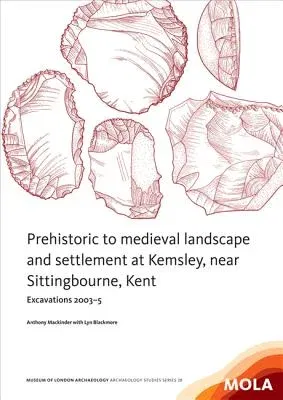Anthony Mackinder
(Author)Prehistoric to Medieval Landscape and Settlement at Kemsley, Near Sittingbourne, Kent: Excavations 2003-5Paperback, 31 January 2014

Qty
1
Turbo
Ships in 2 - 3 days
In Stock
Free Delivery
Cash on Delivery
15 Days
Free Returns
Secure Checkout

Part of Series
MOLA Archaeology Studies
Part of Series
Museum of London Archeology Studies
Print Length
100 pages
Language
English
Publisher
Mola (Museum of London Archaeology)
Date Published
31 Jan 2014
ISBN-10
1907586210
ISBN-13
9781907586217
Description
Product Details
Authors:
Book Format:
Paperback
Country of Origin:
GB
Date Published:
31 January 2014
ISBN-10:
1907586210
ISBN-13:
9781907586217
Language:
English
Pages:
100
Publisher: